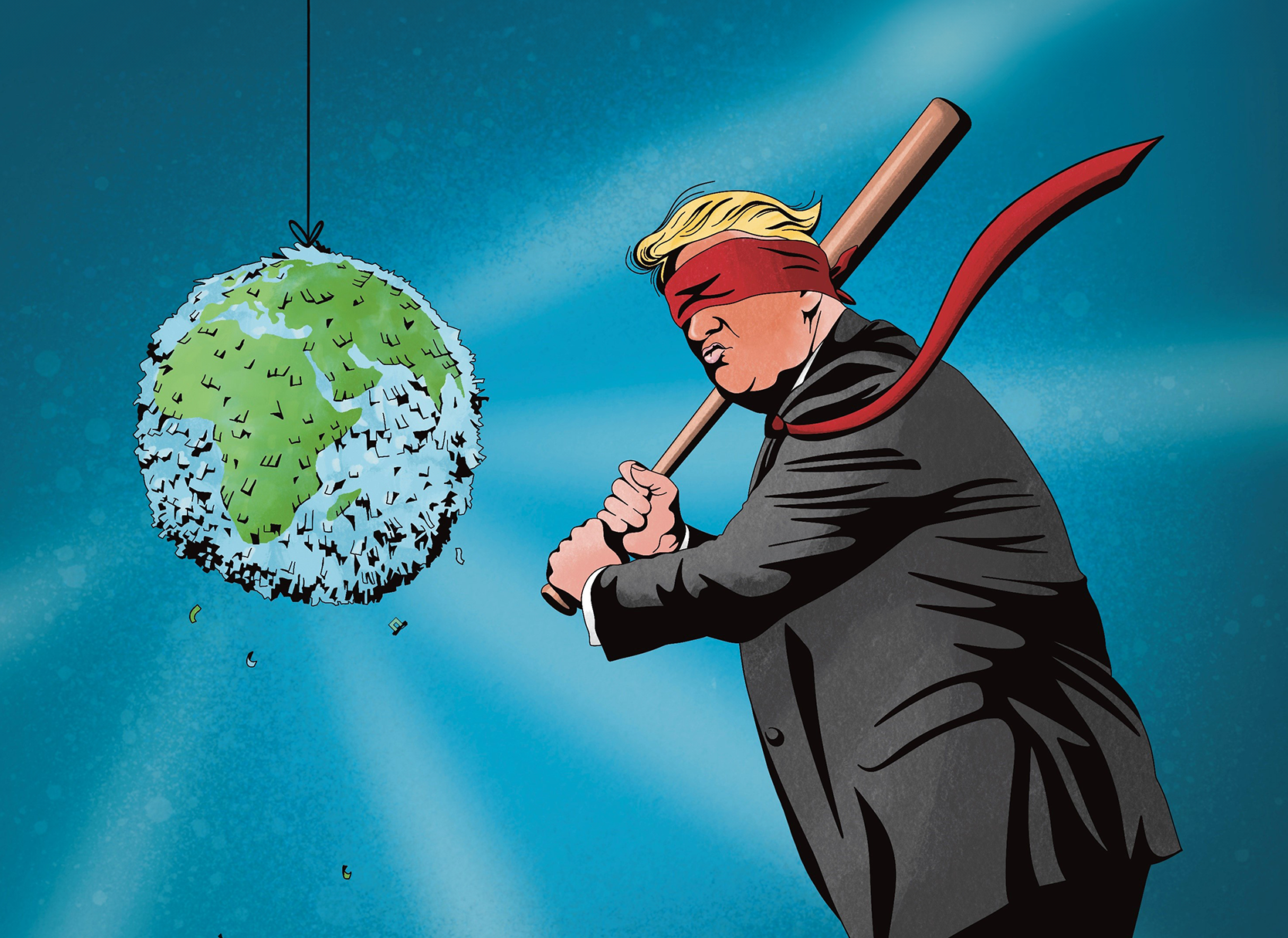The reality in science is changing almost by the day due to US government policies. Wageningen scientists are therefore considering securing data on their own servers and requests are trickling in from US scientists to help with a new job.
Last week, professor of European Forests Gert-Jan Nabuurs received an e-mail from an American colleague friend. He asked if Nabuurs wanted to share his resume. The Trump administration had cut the funding for his Forest Carbon Modeling Group with immediate effect and he was looking for a new job. ‘If you see an opportunity, help me out,’ he said. So I shared his resume. It’s frightening how fast things are moving. Entire groups in climate research are being wiped out. Their research is not consistent with the government’s ideas, it’s getting dictatorial. This is really going to lead to a brain drain in the U.S.’
Hester Biemans, professor of Integrated Assessment of Water and Crop Production, saw something similar. She recently received two job applicants from the U.S. who explicitly mentioned that they had been fired by the Trump administration. ‘And on LinkedIn, researchers who lost their jobs in America are asking their networks for help.’
Securing data
Another consequence of the policy from the U.S. is that scientists – also from Wageningen – are thinking about data availability. Thomas Janssen, associate professor in the Department of Plant Ecology and Nature Management, researches forest fires and drought with the help of American satellite data: ‘I don’t secure data yet, but I should… It’s all very uncertain right now. There are datasets from NASA and National Oceanic and Atmospheric Administration (NOAA) that could just disappear for us.’ But, securing data also poses a danger to transparency, Janssen says: ‘If we all start transferring data to our servers on our own, overview and openness will disappear with it. What you actually want is for a European institute like Copernicus to take over the data, make it public and do the quality control.’
Biemans uses climate data from Copernicus, and now finances her research mainly with European money, so she is not worried yet. ‘But I did see that, for example, Fews Net – which uses analyses to predict famine – went down overnight. So you just can’t access it anymore.’
Restriction of academic freedom
Professor Guido van der Werf of the Department of Meteorology and Air Quality, like Janssen, mentions the ‘atmosphere of uncertainty’ that currently prevails: ‘There is a lot going on. You notice that academic freedom is being restricted and that is terrifying. Ignoring scientific information that does not fit into one’s worldview is of all times, but because of this official policy we are going back to the days of quackery.
Securing data is no longer an exception, Van der Werf says; often at the request of scientists in the U.S. as well. ‘And researchers doubt whether they still want to co-author an article if certain words have to be deleted from it. I mainly work with people who work at universities, and so far the damage has not been too bad. Colleagues at NOAA and NASA are having a very hard time though, especially because there is a lot of uncertainty about what is going to happen.’
Critical services
That’s something professor of Meteorology and Air Quality Jordi Vila recognizes: ‘Currently, NOAA is facing significant redundancies. Critical services are at risk due to reduced manpower. Think of the prediction of extreme weather, such as tornadoes. Entire lines of research are being abruptly discontinued, hampering efforts to monitor climate change and our understanding. Rebuilding these research teams would require yeas of work. And given the rate of climate change, a setback that is particularly concerning given the accelerating pace of climate change.’
IPCC and COP
In addition to the brain drain and data, Nabuurs is also concerned about the global climate panel IPCC, which conducts scientific research on climate change. The professor is lead author of five IPCC reports. ‘The noises I hear there are dramatic. The latest news is that the U.S. has already withdrawn funding for one report.’ He has no confidence in the upcoming climate summit in Brazil, COP30, either. ‘Without the US – one of the big emitters of CO2 that is also at odds with China, the other big emitter – nothing will come of it.’
Translated using DeepL.

 Photo Shutterstock.
Photo Shutterstock. 
